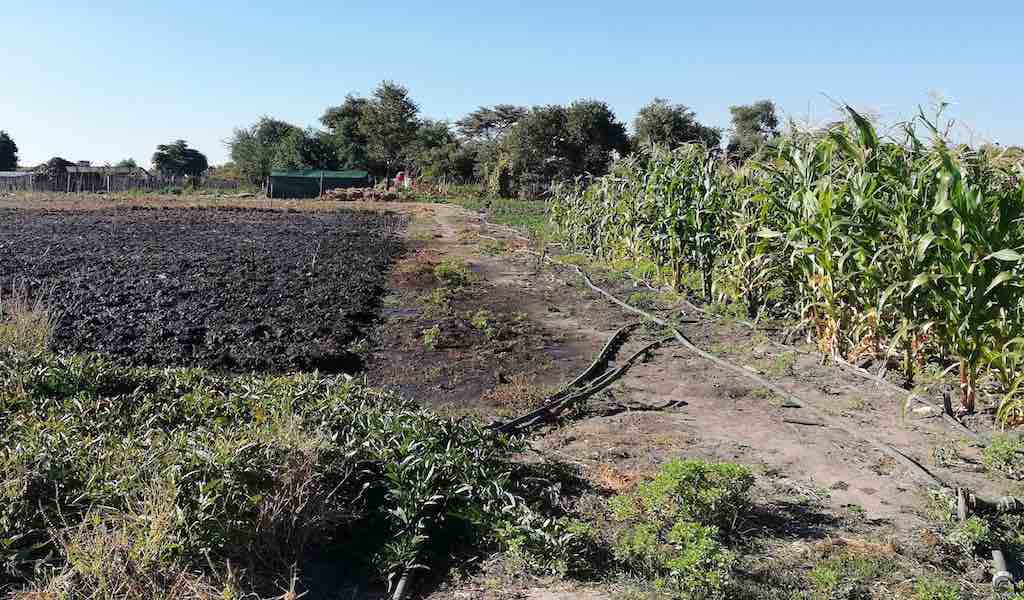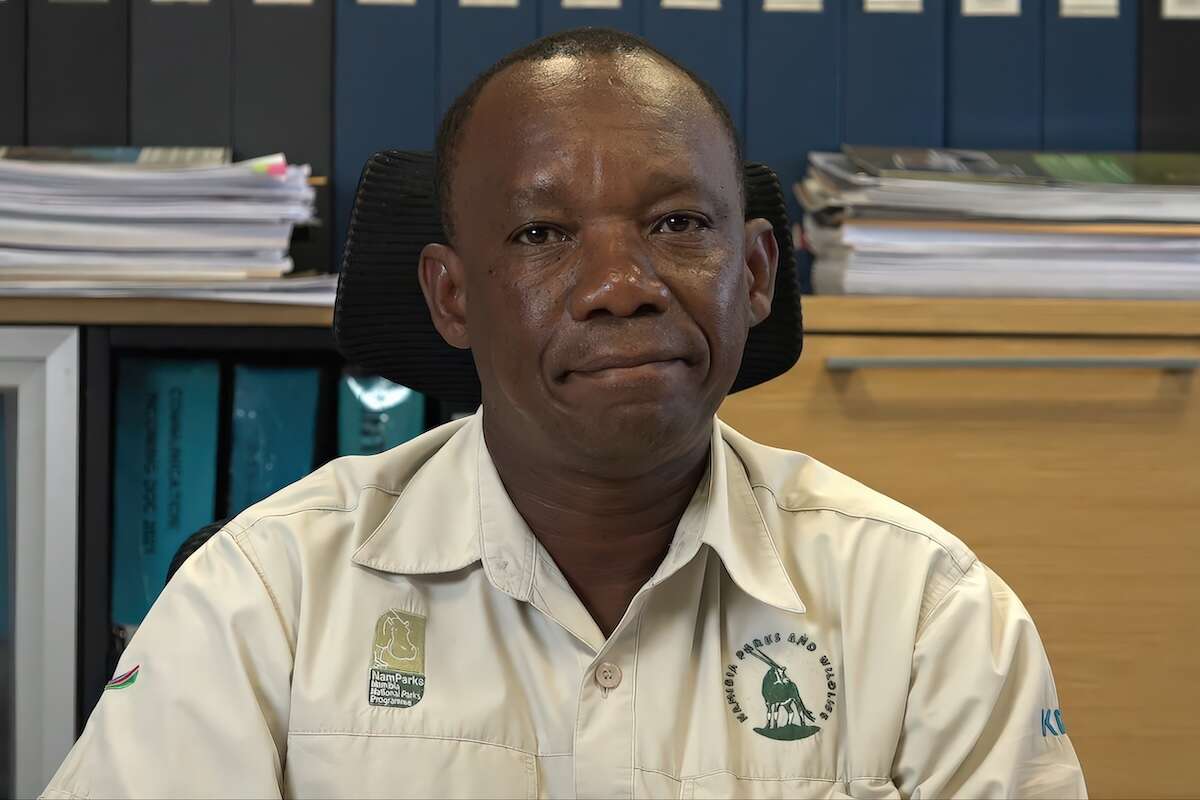
Community game guards and the history of communal conservancies
Game guards were appointed during the 1980’s to operate in the north-western and north-eastern parts of Namibia before communal conservancies were recognised by law. Traditional leaders appointed game guards to look after the wildlife in areas that were heavily poached at the time. This important programme, spearheaded by Integrated Rural Development and Nature Conservation (IRDNC), aimed to re-empower communities to manage their own natural resources. Game guards remain the eyes and ears of today’s communal conservancy programme.
What do Community Game Guards do?
Community game guards (also called “environmental shepherds” in some areas) are men and women selected from within their communities to monitor wildlife and report on human-wildlife interactions (e.g. conflict, poaching) in their conservancies. They are unarmed and therefore function mainly as information conduits between the people living in conservancies and the conservancy management and committees. Game guards are respected members of their community who already have good knowledge of their area and the wildlife that inhabit it.
Each game guard patrols a particular part of their conservancy and keeps an Event Book to record their observations. The Event Book carried by the Game Guard is a small booklet that allows them to record a range of wildlife-related incidents and observations quickly and easily. These include: human-wildlife conflict (e.g. loss of livestock to predators or crops to elephants), poaching cases, sightings of rare species, wildlife mortalities to various causes, fire, and any other incidents of interest. These daily records are then transferred to monthly record books held at conservancy offices and finally transferred into annual record books that are used by the conservancy and at a national scale.
As they are unarmed, community game guards will call for assistance when encountering signs of armed poachers or gaining intelligence of their movements. They will relay their information immediately to the Ministry of Environment, Forestry and Tourism and/or the Namibian Police Force who will investigate further to track down and apprehend poaching suspects (read more about the specialist units combating wildlife crime here). The game guards thus play an important role in Namibia’s intelligence-led anti-poaching strategy.
Beyond their daily monitoring tasks, game guards participate in annual game counts (by vehicle in the north-west and by foot in the north-east) that provide crucial data on wildlife trends for these landscapes. They are also involved with wildlife harvesting in their conservancies and will accompany the hunters to ensure that the conservancies’ rules are followed on these hunts. Game guards assist with meat distribution within their communities to ensure that this process is equitable.
The basic game guard concept has been expanded to include fish guards for community fish reserves, resource monitors for plants, rhino rangers and lion rangers. These are specialist game guards that assist with monitoring their respective types of resources or species. Fish guards monitor fishing rates and resource monitors record plant harvesting in a similar way to game guards monitoring hunting. Rhino rangers assist with rhino monitoring and are an important part of rhino anti-poaching efforts. Lion rangers are tasked with mitigating human-lion conflict.
Community Game Guards’ Resource Needs
The resources provided to game guards depend on the financial status of their conservancies. Wealthier conservancies pay their game guards salaries, provide them with uniforms and provide bicycles or donkey carts to assist them in their patrolling duties. In poorer conservancies, game guards are voluntary, do not have uniforms and must patrol on foot. Some tour operators working in these conservancies and other non-governmental organisations have helped the game guards in these conservancies by supplying equipment and e-bicycles. These efforts help game guards fulfil their duties and boost their morale, as they are recognised for their critical efforts on the frontline of community conservation.
For articles on similar topics, please click one of the following options:
If you enjoyed this page, then you might also like:



We use cookies to monitor site usage and to help improve it. See our Privacy Policy for details. By continuing to use the site, you acknowledge acceptance of our policy.